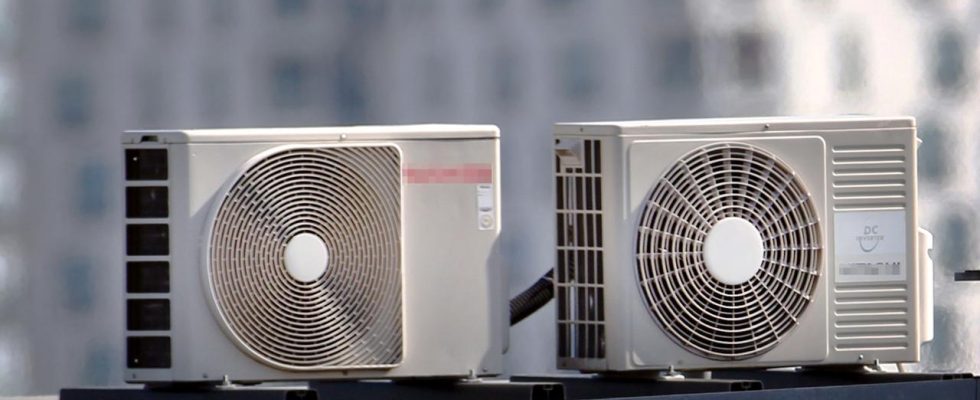While the heating law is being discussed, Germany is faced with another problem as the summers get hotter and hotter: the energy guzzler of cooling. But that is underestimated by politicians.
Refrigeration specialist Tim Beer and his employees in Munich have their hands full. They install cooling equipment for buildings. “The air conditioners are increasingly in demand,” says Beer. Planning security would be important for him and his customers. Above all, because by 2030 many refrigerants for air conditioning will no longer be used. Then most of the substances used today will be banned because they are classified as extremely harmful to the climate.
While the air conditioners cool, the electricity meters run hot. The trend towards room cooling is only just beginning in apartments and private houses. According to the Federal Environment Agency, around half of office and administration buildings already have cooling systems.
Cooling as a high proportion of power consumption
The Marie-Elisabeth-Lüders-Haus on Berlin’s Spreebogen shows how much energy can be consumed by cooling buildings. Offices and the library of the Bundestag are housed there. The average energy consumption for heating: 4103 megawatt hours (MWh) per year. And for cooling: 2537 MWh. This corresponds to almost 40 percent of the total requirement. The situation is similar in many other buildings.
“The buildings that have been built for several decades have a relatively high proportion of glass, and above all they have a high insulation value,” explains Martin Kriegel from the TU Berlin. “If the buildings are now optimized so that they do not let any heat from the inside out, then this heat stays in the room, and one speaks of a heat trap. That leads to a greater need for cooling.”
But politicians don’t seem to have the enormous energy requirements for cooling buildings on their radars yet. The new Building Energy Act, which has been under discussion for months, is primarily about heating. There is hardly any mention of building cooling. Sebastian Breer from the environmental protection organization WWF Germany is calling for heat and cold to be more closely interlinked. “Common concepts that do not run separately from each other” are needed.
Cooling center at Potsdamer Platz in Berlin
The energy supplier Vattenfall operates a refrigeration center in Berlin. Around 12,000 offices and 1,000 apartments are supplied with cooling from there. As Gerhard Plambeck from Vattenfall explains: “Back then, the state of Berlin developed a forward-looking concept 30 years ago for the new development area on Potsdamer Platz to supply electricity, heat and cold . Actually exemplary.”
The central system works efficiently and requires only a fraction of the energy that individual refrigeration systems would use. “We have 13 machines in use, and each one can work in the optimal range,” explains Plambeck. “If a customer only has one or two machines, then they can’t work optimally in the area of effect. And it has a much lower efficiency.”
According to the Federal Environment Agency in Dessau, district cooling definitely has advantages. There are figures that you can save 40 percent of the energy compared to the individual building supply. Unfortunately, the concept is not yet widespread in Germany.
federal government: No talk of refrigeration plans
While the federal government wants to advance the heat transition and is now even introducing a heat planning law for district heating, it is lagging behind when it comes to the cold. In the new energy efficiency directive, the EU has obliged its member states to promote cooling plans by the municipalities. Nevertheless, the federal government is not talking about cooling plans.
The ARD magazine Plus minus ask the Federal Ministry of Economics and Climate Protection. There it says: “The Federal Ministry of Economics and Climate Protection deals with energy renovation and the renewable heat transition. Your request is more about cooling in extreme weather. You are in the right place in the Federal Ministry for the Environment and Consumer Protection, possibly in the Federal Ministry for housing, urban development and construction.”
Then the message from the Ministry of the Environment: “(…) please contact the Federal Ministry of Economics and Climate Protection.” Received from the Ministry of Construction Plus minus until today no answer. So silence from the federal government – and uncertainty among citizens and companies.

